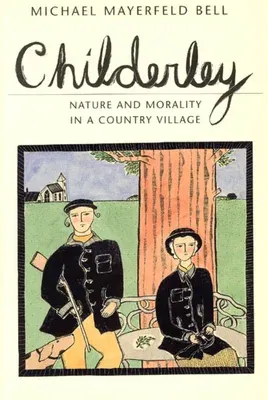In Childerley, a twelfth-century church rises above the rolling quilt of
pastures and grain fields. Volvos and tractors share the winding country
roads. Here, in this small village two hours from London, stockbrokers
and stock-keepers live side by side in thatched cottages, converted
barns, and modern homes. Why do these villagers find country living so
compelling? Why, despite our urban lives, do so many of us strive for a
home in the country, closer to nature? In this ambitious study, Michael
Bell suggests that we are looking for a natural conscience: an
unshakable source of identity and moral value that is free from social
interests - comfort and solace and a grounding of self in a world of
conflict and change. During his extensive interviews with over a hundred
of Childerley's 475 residents - both working-class and professional -
Bell heard time and again of their desire to be "country people" and of
their anxiety over their class identities. Even though they often
knowingly participate in class discrimination themselves - and see their
neighbors doing the same - most Childerleyans feel a deep moral
ambivalence over class. Bell argues they find in class and its conflicts
the restraints and workings of social interests and feel that by living
"close to nature" they have an alternative: the identity of a "country
person," a "villager, " that the natural conscience gives. Yet there are
clear parallels between the ways in which the villagers conceive of
nature and of social life, and Bell traces these parallels across
Childerleyans' perspectives on class, gender, and politics. Where
conventional theories would suggest that what the villagers see as
nature is a reflection of how they seesociety, and that the natural
conscience must be a product of social interests, Bell argues that
ideological processes are more complex. Childerleyans' understandings of
society and of the natural conscience shape each other, says Bell,
through a largely intuitive process he call

